IMF and Nepali athorities reach agreement to advance economic program

KATHMANDU: A team from the International Monetary Fund (IMF), led by Mr. Tidiane Kinda, conducted discussions in Kathmandu from September 21 to October 5, focusing on policies and reforms aimed at advancing the completion of the 3rd review of Nepal’s economic program supported by the IMF’s Extended Credit Facility (ECF).
The Nepali authorities and IMF staff have reached a staff-level agreement regarding the necessary policies and reforms for the completion of the 3rd review under the ECF. This agreement is subject to approval by the IMF’s Executive Board.
Upon completion, it will make available SDR 39.20 million (approximately US$51.3 million), adding to the total disbursements under the ECF, which now amount to SDR 156.9 million (about US$205.4 million) out of a total of SDR 282.42 million (approximately US$369.8 million).
According to IMF, Nepal has continued to make progress in implementing the ECF-supported program. The Ministry of Finance has achieved significant milestones on the fiscal front, including the establishment of a fiscal risk register, the publication of non-custom tax exemptions, and the implementation of a cash flow forecasting framework.
These reforms are aimed at enhancing transparency in public finances and improving fiscal management. In the monetary and financial sector, the Nepal Rastra Bank (NRB) has made notable strides, fully implementing the Supervisory Information System (SIS) for Class A, B, and C banks (excluding the onsite module), and issuing new bank asset classification regulations aimed at strengthening monitoring and enhancing bank asset quality.
Nepal’s external position has strengthened, bolstered by prudent fiscal and monetary policies, robust remittances, and a post-pandemic rebound in tourism, despite regional food price fluctuations.
However, domestically, growth in FY2022/23 is estimated to have slowed, influenced by import restrictions and regulatory uncertainties surrounding land markets and construction licensing, reduced credit flows, and diminished domestic demand amid significant post-COVID emigration outflows.
The resulting revenue shortfall has increased the FY2022/23 fiscal deficit, yet it remains consistent with maintaining a sustainable level of public debt, reflecting disciplined budget management.
Growth is anticipated to recover to 3.5 percent in FY2023/24, although it remains below potential due to weak domestic demand. Ongoing balance sheet repairs resulting from a credit boom and a sluggish real estate market have constrained credit growth, despite monetary easing.
Inflation, which stood at 7.5 percent in August, is expected to moderate. Nepal’s medium-term outlook remains favorable, with strategic investments in infrastructure, especially in the energy sector, set to support potential growth.
Given this context, the policies and reforms outlined in the ECF remain well-suited to facilitate the necessary transition to a more stable, pro-growth credit environment while ensuring macroeconomic and financial stability. A cautious and data-driven approach to monetary policy remains essential to preserve price and external stability.
Accelerating planned increases in capital spending, as outlined in the FY2023/24 budget, will stimulate aggregate demand. Regarding reforms, the Nepali authorities and IMF staff have identified the following priorities:
-Formulation of a Domestic Revenue Mobilization Strategy to enhance tax collection.
-Development of an action plan to improve the efficiency of public investment spending.
-Initiation of a loan portfolio review of the banking system.
-Continued strengthening of the NRB’s SIS onsite module.
-Amendments to the NRB Act.
Nepal is committed to bolstering its Anti-Money Laundering and Combating the Financing of Terrorism (AML/CFT) efforts, with the support of IMF technical assistance. The authorities are diligently progressing towards implementing recommendations from the AML/CFT Mutual Evaluation, including amending AML laws to align them with international standards. Future key reforms include:
-Publication of a comprehensive tax expenditure report.
-Annual financial statement publications by public enterprises.
-Financial statement audits of the four-priority public enterprises.
-Consolidated financial information reporting for all extrabudgetary operational funds.





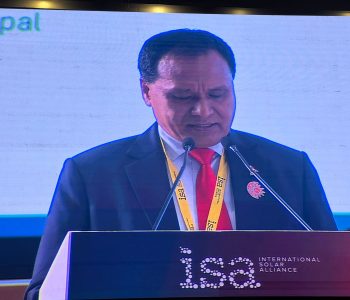

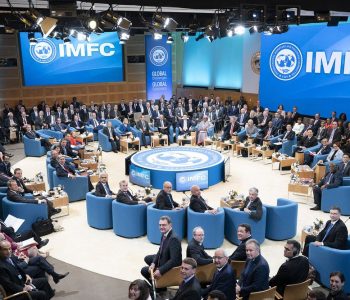

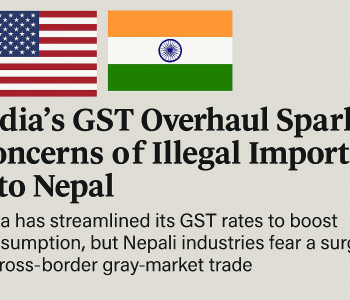
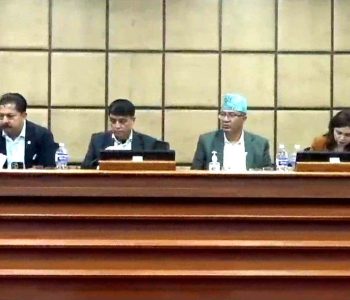

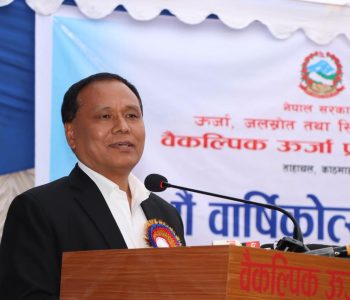
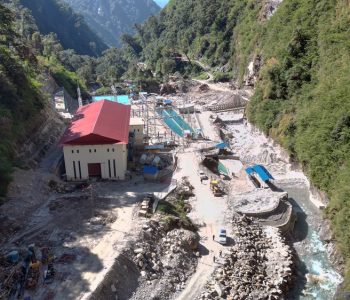
Facebook Comment